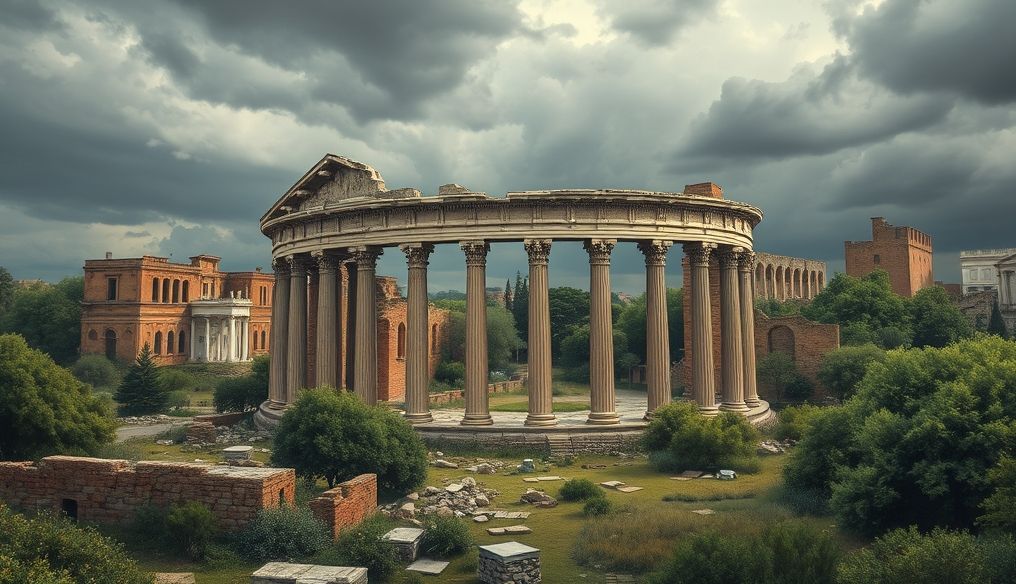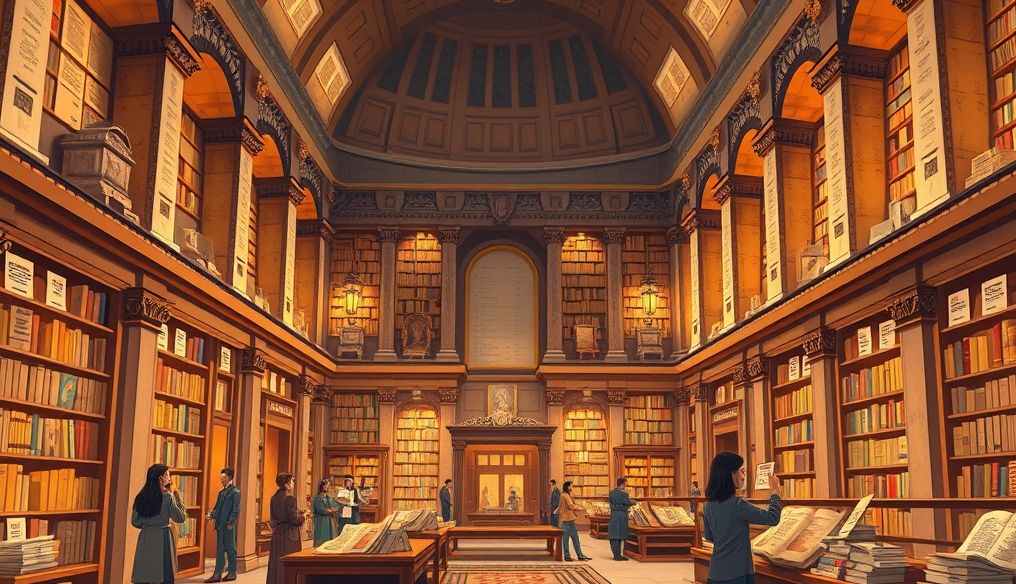Introduction: The Enigma of Rome's Fall
The collapse of the Roman Empire, a pivotal event in human history, has long captivated historians and researchers. Its fall was not merely a military defeat, but the result of an accumulation of complex and intertwined factors, ranging from politics and economics to society and culture. Understanding these factors helps us grasp the dynamics of civilizations and how the mightiest empires can crumble from within and without.
1. Overextension and Bloated Bureaucracy
One of the primary reasons for the collapse of the Roman Empire was its immense size. Constant expansion made it difficult to manage vast territories, necessitating a massive and costly bureaucracy. This bureaucracy drained state resources and led to widespread corruption.
- Difficulty in Governance: Remote regions were hard to access and control.
- Cost of Bureaucracy: Salaries and administrative expenses depleted state coffers.
- Corruption: Exploitation of positions for personal gain was rampant.
2. Economic Crises and Inflation
The Roman economy suffered from successive crises, including inflation resulting from the debasement of currency. This inflation led to rising prices and a deterioration in the living standards of citizens.
Example: Under Emperor Diocletian, an attempt to fix prices by decree failed and led to the black market.
Statistics: Historians estimate that inflation in the 3rd century AD reached record levels.
3. Barbarian Invasions and Migrations
The Roman Empire was subjected to repeated invasions by barbarian tribes, such as the Goths, Vandals, and Huns. These invasions weakened the Roman army and the state's economy.
Examples:
- Gothic Invasion: Led to the Battle of Adrianople in 378 AD, a crushing defeat for the Roman army.
- Vandal Invasion: They seized North Africa, a vital grain-producing region.
4. Political Divisions and Civil Wars
The Roman Empire experienced a series of civil wars and power struggles between military leaders. These divisions weakened the state and destabilized it.
Examples:
- Year of the Four Emperors (69 AD): Witnessed a bloody power struggle between four military leaders.
- Crisis of the Third Century: A period of political chaos and civil wars.
5. Decline of the Roman Army
Over time, the quality of the Roman army declined due to reliance on mercenaries and a decrease in discipline. This weakened the empire's ability to defend itself against invasions.
Reasons for Decline:
- Reliance on Mercenaries: They were less loyal and more interested in money.
- Decline in Discipline: Due to corruption and luxury.
- Difficulty in Recruitment: Due to economic crises and declining national enthusiasm.
6. Rise of Christianity
The rise of Christianity had a significant impact on the Roman Empire. Initially, the Romans persecuted Christians, but over time, Christianity spread and became the official religion of the empire. This led to a change in traditional Roman values and beliefs.
Impacts:
- Decline of Traditional Roman Values: Such as loyalty to the state and veneration of emperors.
- Shift in Allegiance: From the state to the Church.
- Focus on the Afterlife: Instead of concerning themselves with worldly affairs.
7. Climate Change and Epidemics
Some historians suggest that climate change and epidemics played a role in the collapse of the Roman Empire. Drought and disease led to food shortages and a deterioration in the health of the population.
Examples:
- Antonine Plague: Led to the death of millions of people in the 2nd century AD.
- Climate Changes: Led to food shortages and agricultural decline.
8. Loss of Roman Identity
Over time, the Roman Empire lost its distinct identity due to mixing with other cultures and the decline of the Latin language in some regions. This led to the fragmentation of the empire and weakened the ties between its parts.
Reasons:
- Mixing with Other Cultures: Due to expansion and migrations.
- Decline of the Latin Language: In the eastern regions of the empire.
- Loss of a Sense of Belonging: To the Roman Empire.
Conclusion: Lessons from History
The collapse of the Roman Empire is a valuable lesson in history. It shows us how the most powerful civilizations can collapse due to internal and external factors. Understanding these factors helps us avoid the same mistakes and build more stable and prosperous societies.
References:
- Gibbon, Edward. *The History of the Decline and Fall of the Roman Empire*.
- Heather, Peter. *The Fall of the Roman Empire: A New History of Rome and the Barbarians*.




